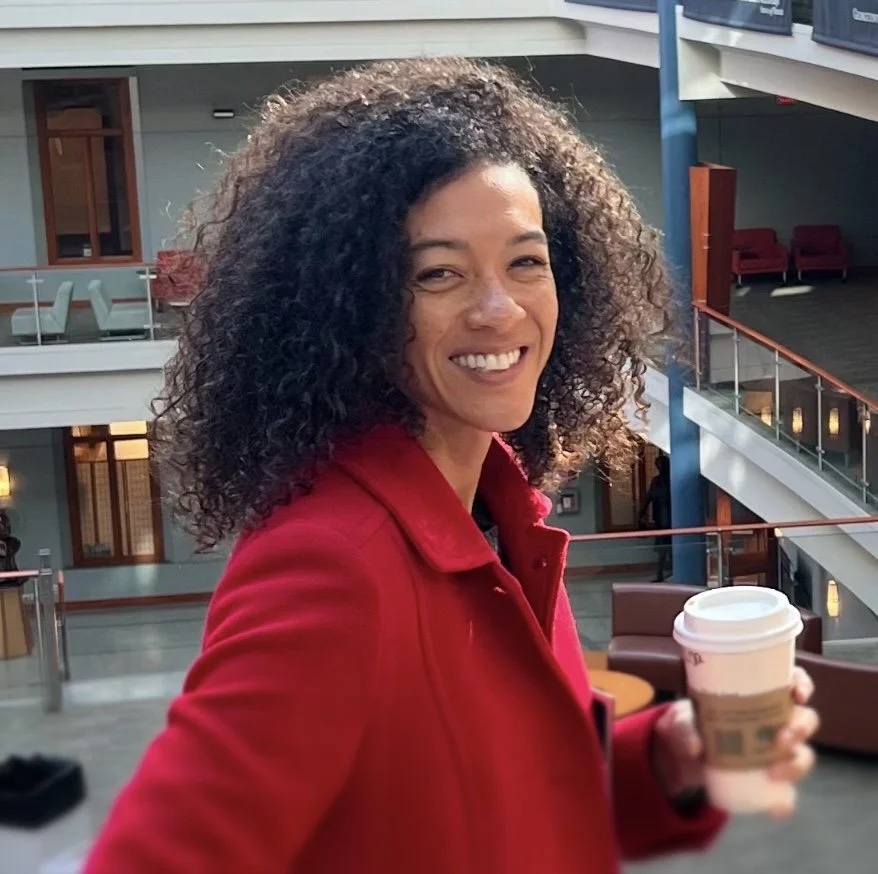Before #MeToo, there was "The First Silence Breaker"
/Sandra Gray Bundy and her grand-daughter Cinyon Reed.
by Lois Cooper
In this era of the #MeToo movement, which has caused a cataclysmic effect across many professions in the wake of pervasive sexual harassment and silence, I want to recognize a local woman. A woman whose courage was critical to the legal case that established the precedent and protection against sexual harassment for all women today. That unsung hero is Sandra Gray Bundy, also known as "The First Silence Breaker” in the March edition of the Washingtonian Magazine.
Bundy's story first became known to me through her granddaughter Cinyon Reed, who shared her grandmother’s personal story of the fight to survive the persistent onslaught of sexual harassment in the DC Department of Corrections during the 1970s. During that time there were no legal protections or statute in the court for such cases. In the Washingtonian Magazine article that honors Bundy during Women's History Month, her attorney Robert Alder remarked, “I had no optimism that we were going to win this thing, because we were really in uncharted waters. But I didn’t care.”
The Washingtonian article outlines Bundy's failed marriages, abuse at the hands of her husbands, and working two jobs to support her children. Bundy chose a government job to stabilize her family and provide for her children. Much to her surprise early on in her position as a specialist at the Department of Correction, according to the article her superiors began making "repeated — and unwanted — sexual advances toward her."
After seeing a post on Facebook from Reed about her grandmother, I reached out to Reed, who agreed to share some of her memories about her grandmother and provide a more insightful look at the soul of this fearless woman. Reed talks about one of her aunt’s memories of her mother being distant when they were growing up. In truth, she was dealing with sexual harassment at work, coming home to her children and retreating to her bedroom without anyone to talk to about her problems.
I asked Reed what she remembers about her grandmother growing up. She says her first memory, at about five or six years old, was watching her grandmother on a local talk show called Panorama, once anchored by Maury Povich. She says her grandmother was doing many interviews at the time, including Good Morning America.
Cinyon Reed, being held by her mother, with grandmother Sandra Gray Bundy, and her great-grandmother
“So yes, my earliest recollection was knowing that something important had taken place and my grandmother was a part of it,” Reed said. “Growing up, my grandmother always talked about her landmark case and writing a book someday.” Reed mentioned at the time her grandmother had many offers to write books or co-author books, but it was too painful at that time.
Long before Reed was born, Bundy was fighting a persistent uphill battle for justice at work and trying to preserve her family at home. Tragedy struck, and Bundy lost one of her children. She suffered bouts of depression, contemplated suicide and was retaliated against and reassigned to work at the Lorton Reformatory Prison for daring to speak up. She continued to fight her battle all the way up the organizational chart with no relief, just more harassment. In 1977, Bundy sued the director of the Corrections Department in federal court.
Where others might have broken or caved in, Bundy held steadfast. A sentiment that sticks out in the Washingtonian article is a claim made "That at the time, judges took it for granted that men would pursue women at work just as they did at the local bar,” and “There was nothing the law could do about it nor should do about it,” says Gillian Thomas, a senior staff attorney at the ACLU’s Women’s Rights Project.
The judge ruled against Bundy in her first case, but the case was later heard in the Appeals Court and the lower court's decision was overturned in Bundy v. Jackson. In this decision, Judge Skelly Wright ruled that, "Such treatment was unlawful under the Civil Rights Act." The decision states that “racial and ethnic discrimination was illegal under the Civil Rights Act because it poison[ed] the atmosphere of employment.” Further, if the court didn’t extend protections to cases like Bundy’s then, "An employer could sexually harass a female employee with impunity by carefully stopping short of firing the employee."
Long before #MeToo, Bundy and three other African American women from DC were the pioneers for the landmark case that gave protection from sexual harassment in the workplace to all women. The appeals trial started on March 12, 1979, on Bundy’s 45th birthday. As I write this post, Reed talked about the family taking her grandmother to the movie to see Black Panther to celebrate her birthday. Reed remarks that her mother and grandmother are both Pisces and more alike than they think. They are both determined and strong-willed.
Bundy showed great courage after so many defeats. She was determined, says Washingtonian, “I’m going to tell the truth,” she recalls. “I was going to stand up for all that has happened.”
In 1986, the Supreme Court upheld the legal principles in the case that Bundy—along with Paulette Barnes and Diane Williams—had helped to pioneer. In the last case, Meritor Savings Bank v. Vinson, a judge made a final ruling "That all sexual harassment was an illegal form of sex discrimination.” The rest is history...
Reed, who is married with two sons of her own, said the things her grandmother instilled in her were: “Be a critical thinker, always have an opinion, if someone else has a thought or an idea just think about it first, always respect myself and others, and always carry myself with pride.”
Bundy now lives in Northeast DC. Reed said her grandmother is an avid reader who enjoys reading National Geographic and global news. She's curious about astrology, numerology and she’s an excellent artist.
I encourage you to read the article and draw on the strength of Sandra Gray Bundy and the other local women who refused to remain silent. Know that if something doesn't feel right, it’s probably not. There is talk about a movie to chronicle Bundy’s story and struggle to provide a safe work environment for herself and all women.
Be Well! Be Strong & Be Encouraged
Happy Women's History Month!


















